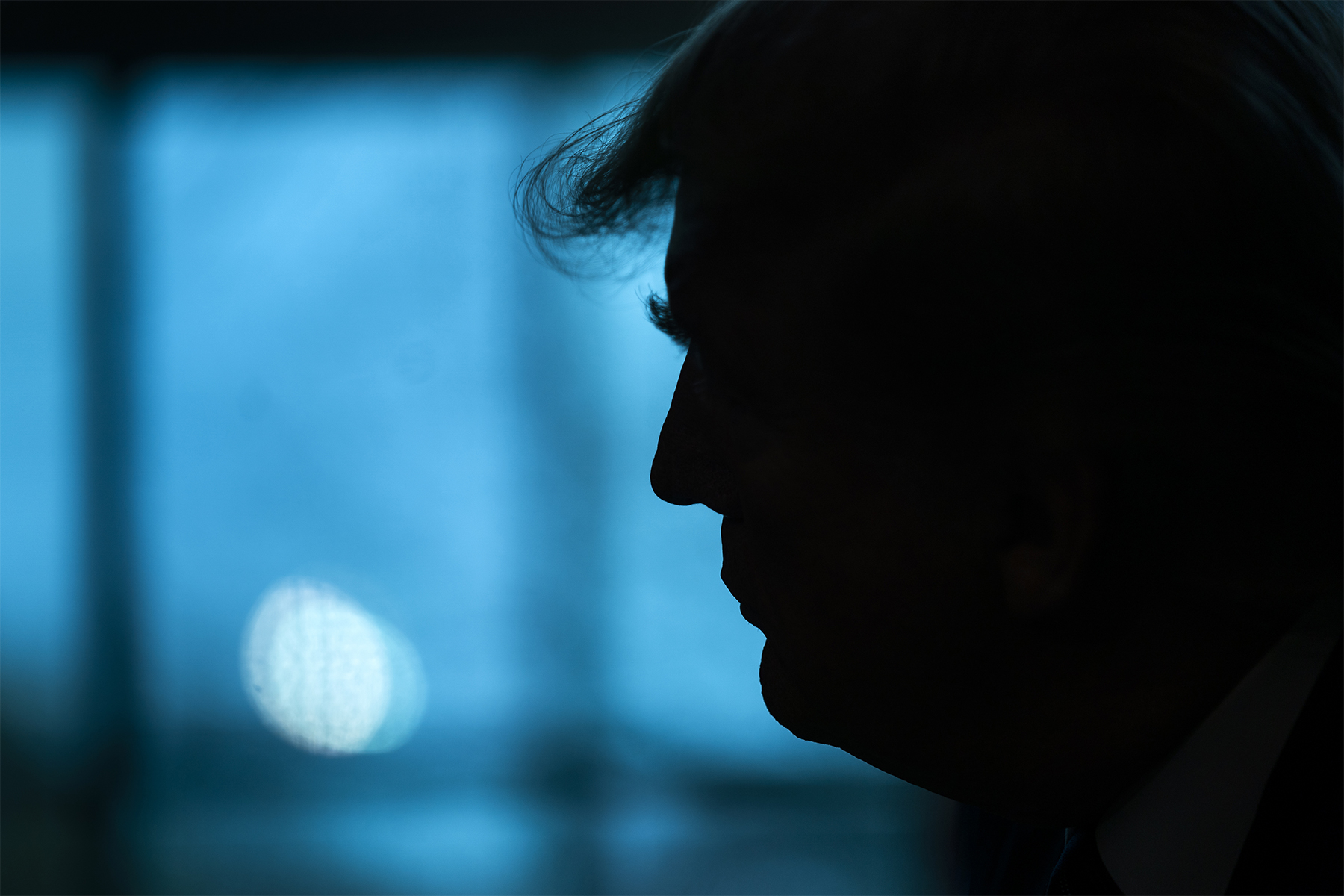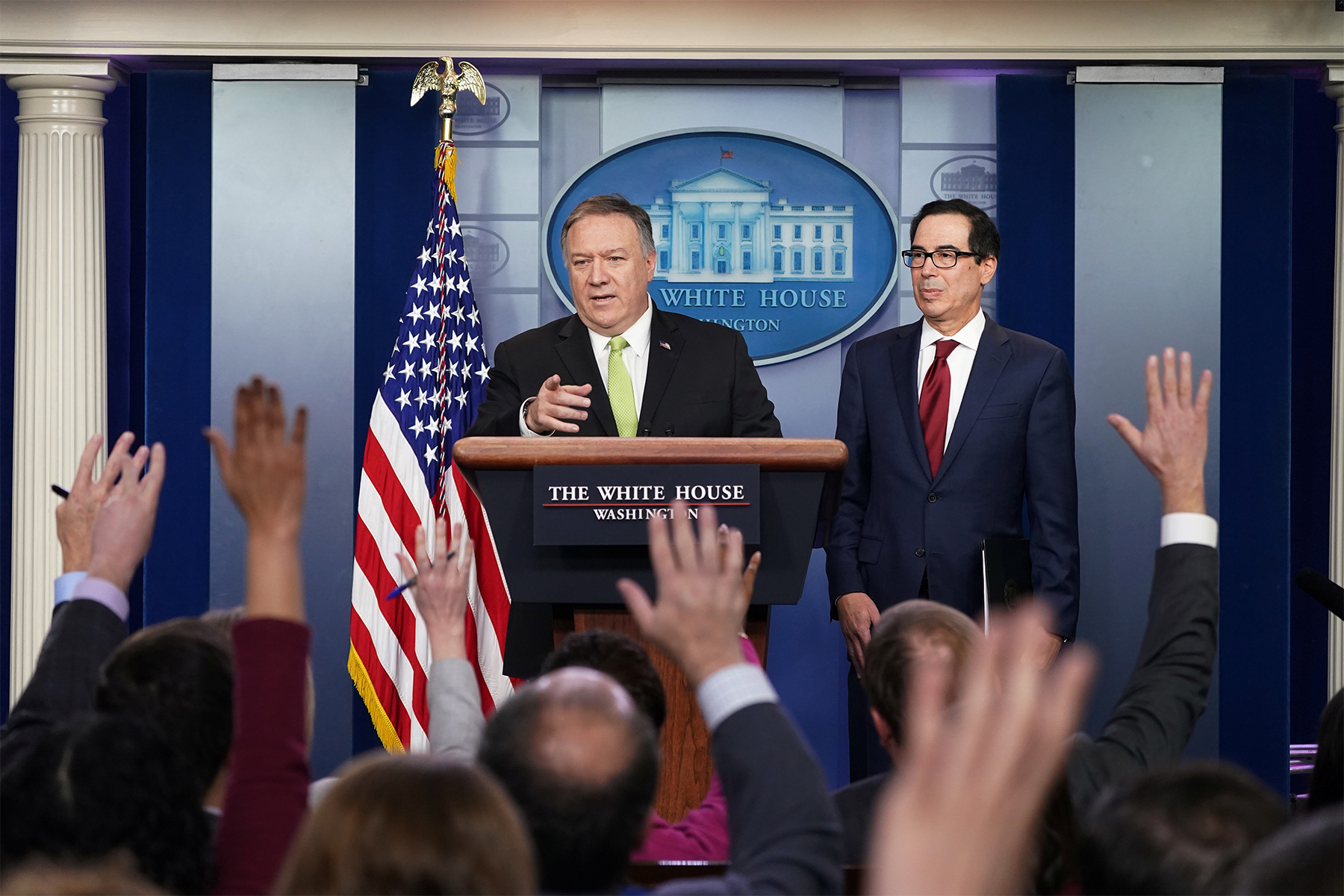The reason was the approaching expiration of the five-year term of the arms embargo and prohibition on ballistic missile transfers to Iran. The UN Security Council resolution 2231 of 20 July 2015 permitted the supply of such weapons (tanks, armoured combat vehicles, large caliber artillery systems, combat aircraft and helicopters, warships, missiles and missile systems), albeit only with the permission of the Security Council for such deliveries on a case-by-case basis. Given that some members of the UN Security Council (primarily the United States) were categorically against the provision of such supplies, their approval by the Security Council was simply impossible. However, the arms embargo was imposed for five years and expires in October 2020. Washington has made an attempt to extend these restrictions, and at the same time to renew the full-scale effect of UN Security Council sanctions against Iran, accusing it of non-compliance with the JCPOA.
The efforts of the US delegation at the UN turned out to be deplorable — first in the Security Council, the American draft resolution on the introduction of an indefinite arms embargo against Iran failed, and then the overwhelming majority of the Security Council members (with the exception of the Dominican Republic) neutralized the American attempt to initiate the special settlement mechanism provided by resolution 2231 disputes to restore the UN Security Council sanctions against Iran (so-called snapback). There is a serious underestimation by the US of the positions of the main players with respect to the Iranian dossier. This is especially true of the US Representative to the UN Kelly Craft, who called in June on Russia and China "to join a global consensus on Iran's conduct".
It turns out that it was the United States that undermined international law and ensured isolation for itself.
The main reason for the current crisis is that the United States withdrew from the JCPOA in May 2018, thereby depriving itself of the rights and opportunities to use the mechanisms provided for by the JCPOA and resolution 2231.
A possible change of Administration in the United States after the November 2020 elections is unlikely to fundamentally change the US sanctions regime and lead to Washington's return to the JCPOA. At least the Democrats do not prioritise this task.
It is obvious that the US trampling on international law including the UN Charter, is taking ever more dangerous turns. At the same time, Washington will purposefully work to create a pseudo-legal reality convenient for itself and impose it on the world community.
The reason was the approaching expiration of the five-year term of the arms embargo and prohibition on ballistic missile transfers to Iran. The UN Security Council resolution 2231 of 20 July 2015 permitted the supply of such weapons (tanks, armoured combat vehicles, large caliber artillery systems, combat aircraft and helicopters, warships, missiles and missile systems), albeit only with the permission of the Security Council for such deliveries on a case-by-case basis. Given that some members of the UN Security Council (primarily the United States) were categorically against the provision of such supplies, their approval by the Security Council was simply impossible. However, the arms embargo was imposed for five years and expires in October 2020. Washington has made an attempt to extend these restrictions, and at the same time to renew the full-scale effect of UN Security Council sanctions against Iran, accusing it of non-compliance with the JCPOA.
The efforts of the US delegation at the UN turned out to be deplorable — first in the Security Council, the American draft resolution on the introduction of an indefinite arms embargo against Iran failed, and then the overwhelming majority of the Security Council members (with the exception of the Dominican Republic) neutralized the American attempt to initiate the special settlement mechanism provided by resolution 2231 disputes to restore the UN Security Council sanctions against Iran (so-called snapback). There is a serious underestimation by the US of the positions of the main players with respect to the Iranian dossier. This is especially true of the US Representative to the UN Kelly Craft, who called in June on Russia and China "to join a global consensus on Iran's conduct".
It turns out that it was the United States that undermined international law and ensured isolation for itself.
The main reason for the current crisis is that the United States withdrew from the JCPOA in May 2018, thereby depriving itself of the rights and opportunities to use the mechanisms provided for by the JCPOA and resolution 2231. At the same time, Washington unilaterally resumed its large-scale sanctions against Iran. As a result, a large number of foreign companies (primarily European) left Iran. They feared the US would use extraterritorial sanctions to penalise them for cooperation with Iran. That is, the unilateral US withdrawal from the JCPOA and the resumption of US sanctions had global consequences. In fact, Iran once again found itself in economic isolation, although for its part, it had complied with the provisions of the JCPOA.
However, the refusal of the UN Security Council and the President of the Council in August, Permanent Representative of Indonesia D.T. Jani, to support US efforts, is unlikely to end Washington's attack on the JCPOA. As Secretary of State Mike Pompeo tweeted on 27 August, 2020, the United States will snap back the sanctions against Iran on September 20. In his interpretation, "Last week, the US triggered the 30-day process to restore virtually all UN sanctions on Iran after the Security Council failed to uphold its mission to maintain international peace and security." “If any member of the UN Security Council introduces a resolution to continue sanctions relief, the U.S. will oppose it. If no resolution is introduced, the sanctions on Iran will still return on September 20. That’s how UNSCR 2231 works”.
As a result, the Americans will be able to operate from the mirror world. That is, the international community will consider the UN Security Council sanctions against Iran to have expired, but the United States will punish everyone who violates these “non-existent” sanctions.
On the whole, Washington's determination to destroy the "foolish deal" (as Pompeo recently called it) and to continue pressure on Tehran is explained by a number of fundamental factors of US foreign policy with respect to Iran.
The contradictions between the United States and Iran are far from being limited to the nuclear programme. For a certain period of time (from 1995 to 2015), nuclear issues were indeed of paramount importance. All key sanctions against Iran's energy and financial sectors were linked to it. However, the list of Washington's claims is not limited to the nuclear issue. Among them are also demands to stop the development and testing of missile systems, stop supporting perceived terrorist movements (Hezbollah, Hamas, Islamic Jihad), disarm the Shiite militia in Iraq, stop supporting the Houthi rebels in Yemen, withdraw all Iranian forces from Syria, stop supporting "terrorists militias abroad”, stop threatening behaviour against US allies in the region (Saudi Arabia, UAE, etc.), and release US citizens and detained citizens from US allies. All these requirements were mentioned in the so-called "12 Demands of Pompeo" — a list of requirements for Iran, which became the ideological basis for the US withdrawal from the JCPOA in 2018. In addition, the US does not hide its rejection of the political regime in Iran as authoritarian and theocratic. Washington is directly setting the task of its policy to pursue regime change in the interests of "liberating the Iranian people."
The reasons for Washington's diplomatic shift, from supporting the JCPOA in 2015 to completely abandoning it in 2018 and attacking its remnants in 2020, are rooted in domestic politics. In the United States, two competing views on Iranian policy have emerged. Obama’s Democratic administration proceeded from the premise that problems need to be solved in stages. It considered the key issue to be the risk of Iran getting nuclear weapons; this meant that it had to be solved in a broad coalition with allies and with the support of the UN. The Americans came to this conclusion even before Barack Obama came to power in 2008. Attempts to restrain the development of the nuclear programme via unilateral sanctions have been made by Washington since 1995. The confrontation with Tehran itself (including the use of sanctions) has lasted much longer — since the Islamic revolution of 1979. However, unilateral bans on Iranian oil exports and other sanctions were not implemented by US allies, or by the overwhelming majority of other players. Without the internationalisation of sanctions through the work of the UN Security Council and the formation of a broad coalition, the pressure on Iran was ineffective. Washington also had no opportunity to pass its entire package of claims to Iran through the UN Security Council. As a result, the nuclear deal was prioritised separately, although all other American claims were reflected in US sanctions legislation targeting Iran. This approach has borne fruit. Four UN Security Council resolutions (1696, 1737, 1747 and 1929) consistently increased pressure on Iran in connection with the development of its nuclear programme. The embargo on the purchase of Iranian oil and financial sanctions caused serious damage to the country and became one of the important factors driving the initiation of negotiations on the JCPOA. Making the nuclear issue a separate priority brought American diplomacy a major victory. The US sanctions regime was significantly strengthened by the UN’s restrictive measures regime; the United States played an important role in the internationalisation of pressure on Tehran and, most importantly, achieved concrete results on Iran's nuclear programme.
Within the United States itself, the approach of the Obama administration met with serious criticism. It was connected with the fact that under the JCPOA, the United States (along with other members of the UN Security Council) were obliged to lift a significant proportion of sanctions (mainly against the energy and financial sectors of Iran), while all other problems in relations with Tehran remained unresolved. That is, Washington voluntarily deprived itself of an important instrument of pressure on Iran, linking itself only with the nuclear deal and leaving all other problems unresolved. Obama's policy was attacked by Congressional Republicans. In May 2015, the then-Republican-dominated Congress endorsed the Iran Nuclear Agreement Review Act (INARA — PL 114-17). The law became a compromise between opponents and supporters of the JCPOA. It obliged the president to confirm (certify) every 90 days that Iran is indeed complying with the JCPOA. That is, Congress obliged the president to constantly keep the issue under control and report on it. Trump, who came to power in 2016, was an ardent opponent of the JCPOA, and used the INARA to torpedo the fulfilment of obligations under the JCPOA by the United States. On May 8, 2018, he announced the nation’s withdrawal from the JCPOA and the resumption of the sanctions regime. Iran was given new prerequisites for lifting the sanctions: the same “12 points”. In other words, the Americans unilaterally violated their terms of the JCPOA and radically increased their demands on Iran.
This step created a serious problem for those hoping to find diplomatic solutions to the problem.
The United States and the rest of the parties to the deal turned out to be different "dimensions" according to the JCPOA. Washington now tied its sanctions to the fulfilment of the entire list of its requirements, while the remainder of the parties to the agreement retained the specific parameters spelled out in UN Security Council Resolution 2231.
The American demarche drew criticism from all of the other UN Security Council members, as well as the EU. Iran itself continued to comply with the key parameters of the deal. But it took "signal" steps to demonstrate its ability to return to the military nuclear programme in the event that parties to the JCPOA failed to implement the JCPOA. The extraterritorial sanctions of the USA also caused general irritation — a large number of European, Chinese, Russian and other companies were forced to leave Iran. Therefore, the attempts of the United States to declare itself an important participant in the JCPOA as if nothing had happened led to rejection in the UN Security Council.
It is important to note that on the narrow issue of the arms embargo, the positions of the United States and its European allies to some extent coincided — they view the prospect of Tehran being supplied with Russian or Chinese systems as a risk. Iran itself is in dire need of such supplies, especially for the renewal of the Air Force. The emergence of modern military aircraft and other systems in Iran will become a big problem for the US allies in the Persian Gulf, and for Washington itself will increase the cost of a possible military operation against Iran. The problem is that the United States, apparently, is not ready to discuss only the narrow topic of the arms embargo, but sets its goal as the complete destruction of the "foolish deal". A possible change of Administration in the United States after the November 2020 elections is unlikely to fundamentally change the US sanctions regime and lead to Washington's return to the JCPOA. At least the Democrats do not prioritise this task.
It is obvious that the US trampling on international law including the UN Charter, is taking ever more dangerous turns. At the same time, Washington will purposefully work to create a pseudo-legal reality convenient for itself and impose it on the world community.
First published in the Valdai Discussion Club.








